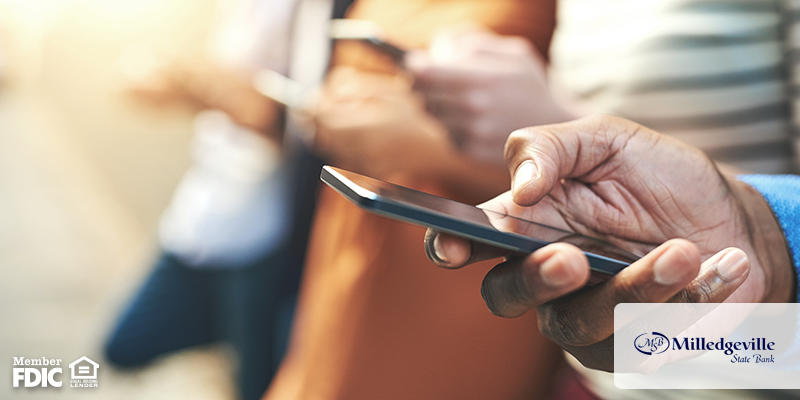
“Technology and social media have brought power back to the people,” Mark McKinnon. Whether or not you fully agree with this statement, social media has become ubiquitous to all ages on multiple platforms. It’s not only the pre-teens who are at risk of becoming victimized by hackers, as even corporations are finding themselves in costly predicaments. Because of this, Milledgeville State Bank has gathered basic standards that everyone should adopt into their social media safety.
- The Big No-No’s
With much of social media, the purpose is to share the highlights of your life with others. However, there are certain facets of your identity that you should never, under any circumstances, share. You may not even know you are outright sharing this information, as it can manifest in basic profile information or slight comments on a friends post. It may seem obvious, but never share your:
-Social Security Number
-Birthdate
-Passwords
-Home Address
-Cell Phone Number
-The State Where You Were Born
- Review Your Privacy Settings Frequently
Social Networking sites can change their privacy options, so it is good to check in to ensure that you are only sharing the information you want shared. There are multiple ways to manage who sees what posts and even who your other friends are. While you are reviewing these settings, be sure to change your passwords to ward off hackers seeking access to your most privileged information. A great option would be to have your password in sentence form. It’s been recommended to have a positive sentence that’s easy to remember like, “I love my puppies!”
- Only “Friend” Those You Know
Although there is a social praise towards those who have a lot of followers, or friends, it is a better standard practice to ensure you are only allowing those you know into your web life. Keep in mind that if you’re posting about your friends, others who you have friended are seeing it, too. It isn’t only your identity that is at risk, so friend responsibly.
- Avoid Oversharing
We all have that one friend that shares EVERYTHING on social media, even down to the smallest detail like what flavor of coffee creamer they had this morning. We don’t want to be this person, but we may be doing similar dangerous behaviors without even thinking.
For example, if you are going on a great vacation, wait to share those photos until you are home. The last thing you want to be doing is advertising that your home is empty for the week. Even miniscule details here and there can be pieced together by predators for a large picture of your life. Review your professional sites like LinkedIn, and be sure you are not sharing your entire work history. This data can be gathered by hackers to fill out applications for things on your behalf.
Don’t make yourself an easy target! Stick to these standards to provide yourself with a digital wall of protection.

